How one of the Top Data Center In North America Leverages NetSuite.
June 4, 2022
NetSuite – High-Performance Business Management Hub used by eStruxture.
Already the largest privately held data center company in Canada, eStruxture Data Centers has 15 locations, 760,000 square feet of data center space, and upwards of 130 megawatts of combined power across those locations. And the company is in growth mode, having most recently moved into the Calgary region, where a new 20-megawatt facility is currently under construction. eStruxture serves an expansive client base that relies on the company to fulfill a variety of data center colocation needs. “We’ve been on a really great growth path recently,” said Director of Development and Strategy Kevin Araujo. “It’s a very exciting time here at eStruxture.” “I’ve worked in IT for more than 17 years, and I’ve never worked for a business that has uniform practices. Everyone has different customers, policies and procedures. NetSuite accommodates these differences and puts the right tools in your hands from day one.” Kevin Araujo, Director of Development and Strategy, eStruxture “We wanted software that could integrate with our other applications and platforms and help us deliver a great customer experience through data enrichment and customer portal access, while also making the company as a whole more efficient and profitable.” Kevin Araujo, Director of Development and Strategy, eStruxture Araujo’s focuses include optimizing the company’s Enterprise Resource Planning (ERP) platform and managing internal IT resources and a client helpdesk application. The Right Choice eStruxture was running on several different legacy software platforms and searching for a new ERP when its finance team expressed a need for a robust system to manage the intricacies of the company’s business operations. Specifically, the team wanted a solution that could handle billing within certain terms, cater to specific client needs, and capture general ledger (GL), expense and invoicing data. It wasn’t long before demand for a new ERP spread to the company’s other business units, all of which would benefit from a centralized platform that could be molded and shaped to fit eStruxture’s specific requirements. The company also wanted the ability to create business rules and cement, consolidate and centralize some of its existing internal processes.
To achieve all that, eStruxture needed an ERP to serve as its central repository, enabling various business units—including marketing, customer service and finance—to retrieve accurate, timely data and take the necessary actions on it. “We wanted to be able to consolidate data sources with our ERP, knowing that our applications existed not only for internal use, but also for our customers,” Araujo said. Using power monitoring, for example, eStruxture collects information on power use, which is a key metric in the colocation space. The organization reports on and, in some cases, bills based on power consumption. By integrating this data with its ERP, eStruxture sales teams gain a better understanding of customers, power use and trend analysis across a period of time. eStruxture can also provide power consumption information through a self-service customer portal. “Having an ERP platform that we could customize in terms of the integration was an important consideration,” Araujo said. Every Company Has Unique Requirements While there are a number of industry-specific software programs available, eStruxture wanted a unified cloud ERP that would run all of its business processes. The ERP also had to be customizable and able to integrate with outside applications. eStruxture found what it was looking for in NetSuite and began working with NetSuite Alliance Partner Beyond Cloud Consulting to implement its new ERP. Where other systems may force users to conform to what their applications can do, Araujo liked how NetSuite is adaptable and scalable. eStruxture can build custom business rules within NetSuite, for example, with a focus on both company and industry policies and practices. “You can do that really, really well inside NetSuite, which allows power users with no- or low-code capacity to create workflows,” said Araujo. “It’s great when you can go in and create a visual workflow that includes directions like, ‘hide this button,’ ‘create a ticket’ or ‘create a task.’ Those are the things that really help us build business rules for our organization.” This is important because every company is unique and operates with its own set of processes, approaches and preferences.
Working with Beyond Cloud Consulting, eStruxture decommissioned its legacy platforms and migrated its data over to NetSuite. The ERP is now used by all functional groups within the company including finance, operations, marketing and IT. Using SuiteCommerce Advanced (SCA), the company has a customer-facing portal that integrates directly with various outside applications. eStruxture is also using NetSuite Planning and Budgeting, which gives its finance team visibility into important metrics and key performance indicators. Through its partnership with Beyond Cloud Consulting, eStruxture built out workflows that monitor bandwidth use and aggregate cases from external sources, like incoming emails, and then create rules for specific business units. Much of its previously manual marketing work has since been automated, including the gathering of initial website leads. Those leads go directly into NetSuite for qualification by the sales and marketing team and are then fed into the company’s sales funnel. With a hyperscale-grade data center facility build underway in Calgary, eStruxture is focused on establishing the infrastructure, adding staff, and getting new team members onboarded into NetSuite. eStruxture also continues to work with Beyond Cloud Consulting, which it sees as an extension of the organization’s IT department. “From an implementation perspective and in terms of post-implementation support, we couldn’t be happier,” said Araujo.
